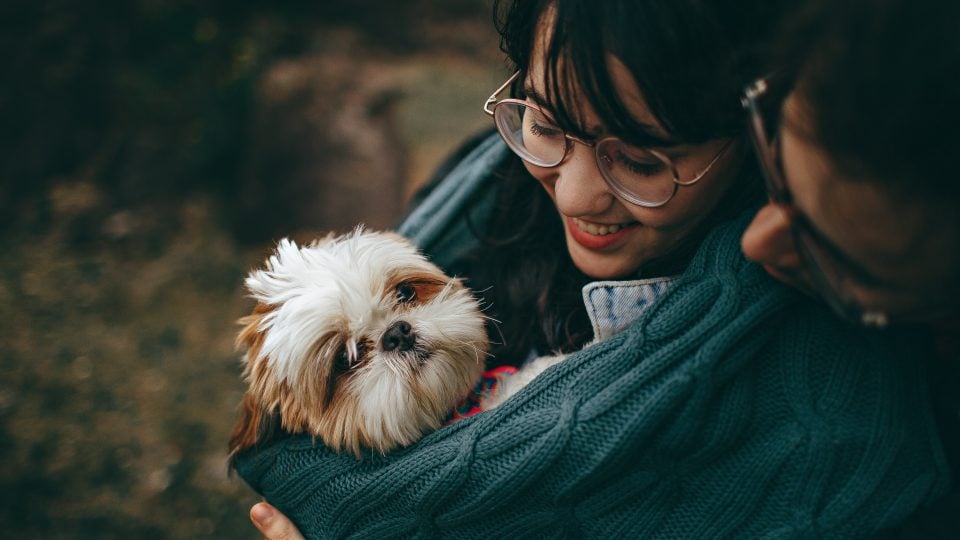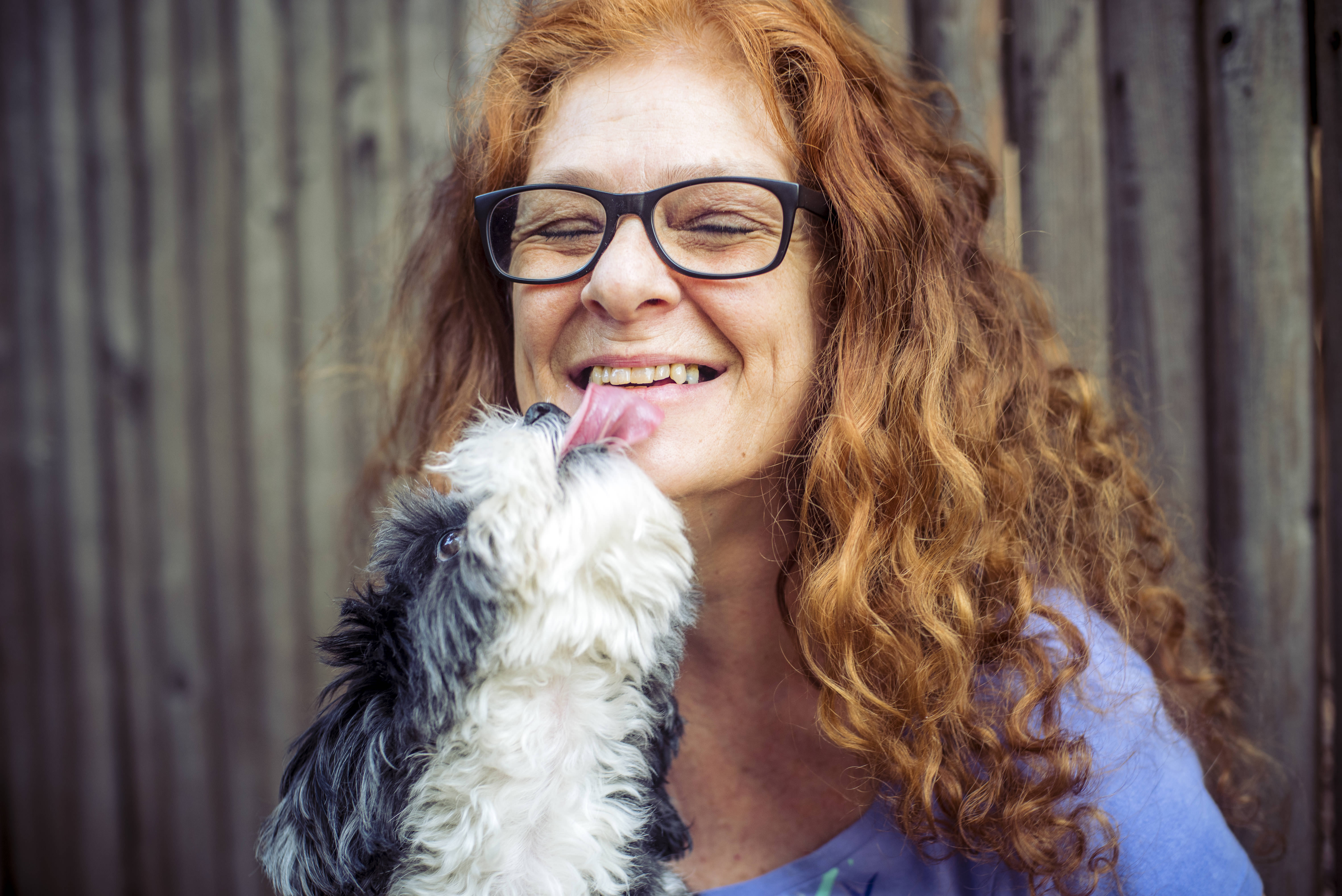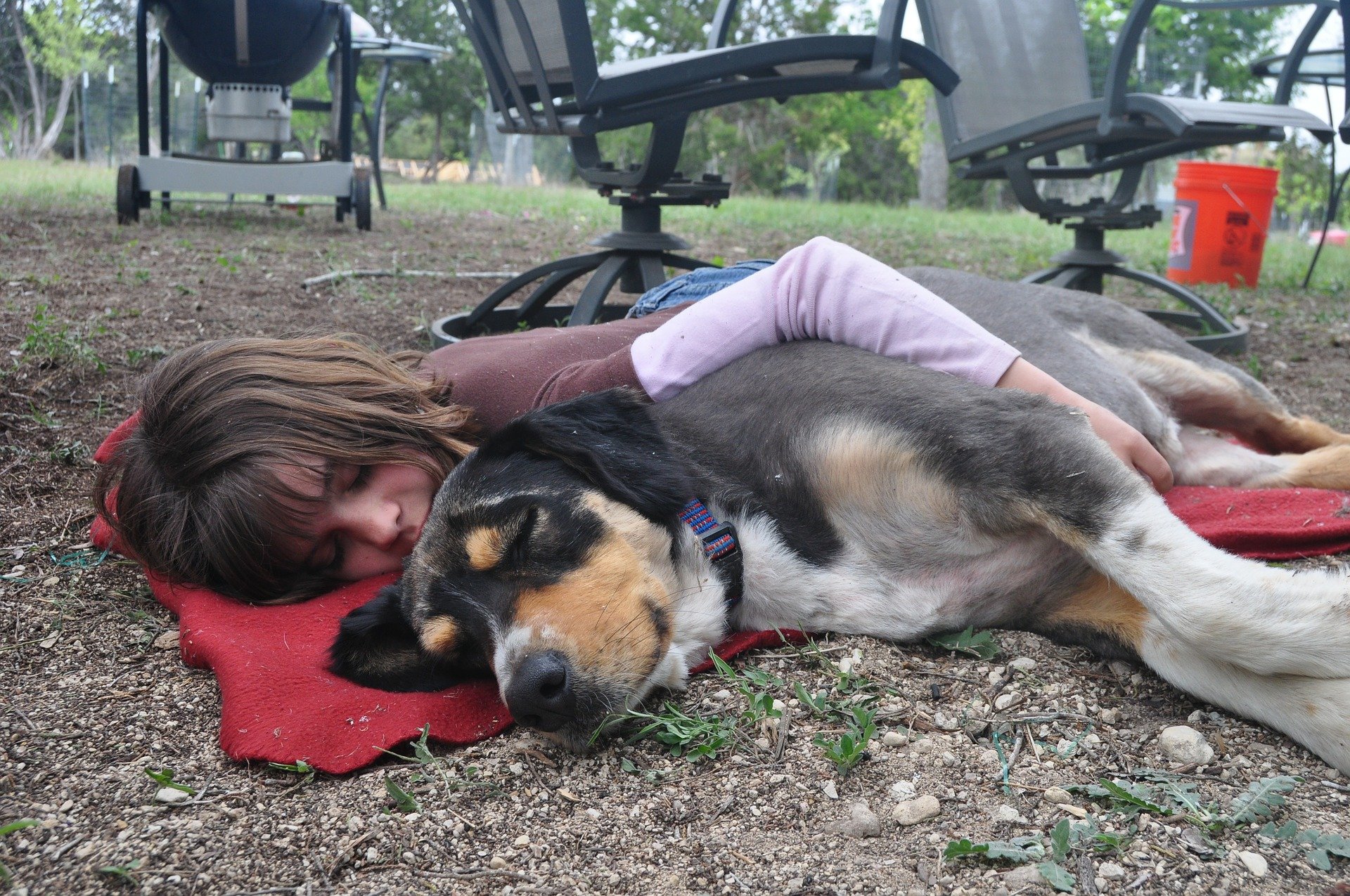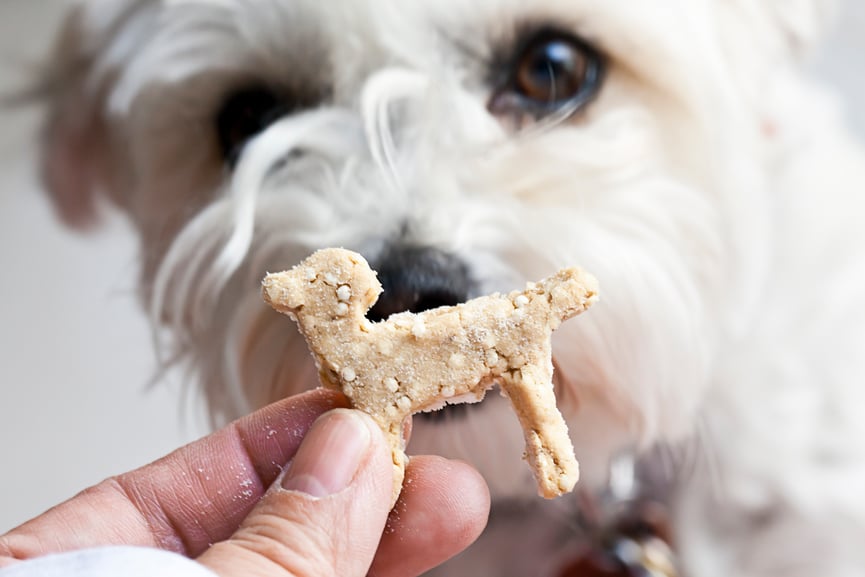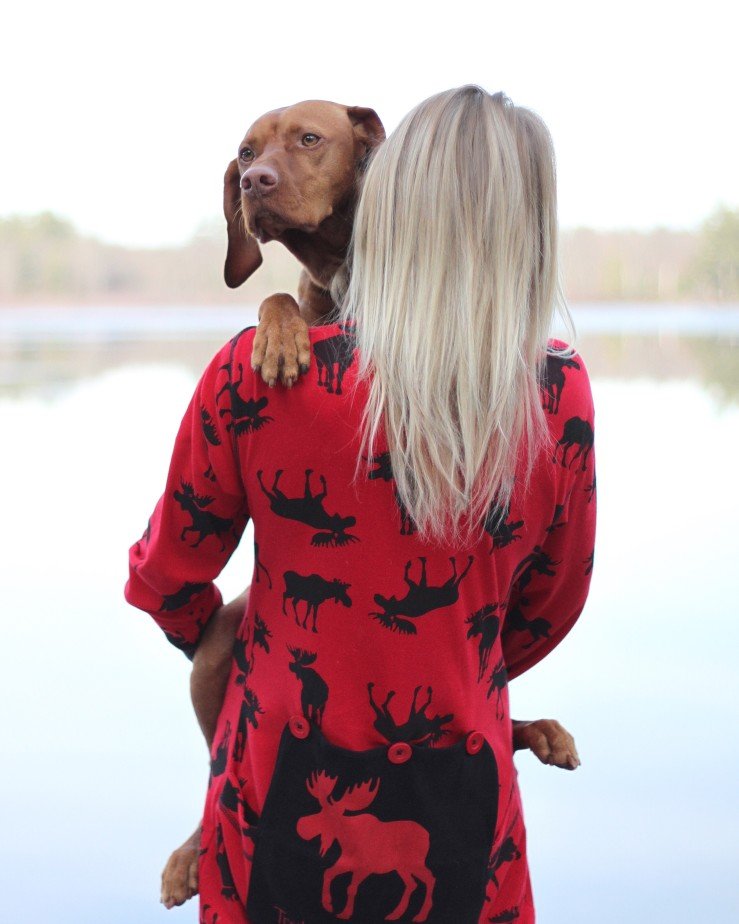Everybody wants to be the dog’s favourite! In short, it’s all about socialisation, attention, positive association, and personality. But let’s get into the nitty-gritty details so you, too, can become your dog’s favourite person. Or, you know, in case you just want proof that you’re number one.
Sometimes, a dog’s favourite person is not always their primary caregiver. It could be their dog walker, their Rover.com dog sitter who provides dog boarding, or even the neighbour who always has a treat in their pocket. So how do dogs choose their favourite person? And is it possible to change their minds?
Of course, every dog is different, but some generalisations apply. Read on to learn all about how dogs choose their preferred people.
Socialisation matters
Many dogs bond hardest to whoever cares for them during their key socialisation period, which occurs between birth and six months. At this age, puppies’ brains are incredibly receptive, and their early social experiences influence them for the rest of their lives. That’s why it’s so important to ensure your puppy has positive interactions with a wide range of people, places, and things.
For example, dogs who aren’t exposed to people wearing hats may become afraid of hats later in life. If your dog was already an adult when you adopted them, don’t worry: it’s not too late to become their favourite. While early experiences are important, continued socialisation throughout their life matters a lot!
Attention (and affection) increases the bond
Now, we already know that some dogs may prefer someone who isn’t their primary caregiver, but most dogs tend to bond to the person who gives them the most attention. For example, in a family with two parents and two kids, the dog may favour the parent who fills their bowl every morning and takes them for a walk every evening.
In addition, physical affection solidifies the bond between dog and person. If a person is stand-offish towards a dog, the dog will be stand-offish towards them. But if you give your dog plenty of pats, grooming sessions, massages, and love, they are likely to seek out more.
Positive association is key
Beyond the attention of their favourite people, dogs play favourites depending on associations. In other words, when a person is the source of good stuff, the dog forms a bond.
When you think about it, it makes a lot of sense. Of course, a dog is going to love the person who always plays tug of war or gives them loads of their favourite stinky beef liver treats. They also know that the person who feeds them most often is a pretty important player in their lives!
On the other hand, that’s also why dogs often react poorly to people with whom they have bad associations. Positive associations lead to positive dog-human relationships. You can use positive association to help in training and socialising your dog.
For example, whenever somebody new comes to your house, have them give your dog treats. This establishes an immediate positive association (new person = tasty treats) that helps ease the introduction.
Human personality and dog breed play a part
Have you ever met a dog that looks and behaves a lot like their person? The saying “like attracts like” applies to dogs and people, too. Dogs often choose a favourite person who matches their own energy level and personality.
In addition, some dog breeds are more likely to bond to a single person, making it more likely that their favourite person will be their only person. Breeds that tend to bond strongly to one person include:
- Basenji
- Greyhound
- Shiba Inu
- Cairn Terrier
- Viszla
How to become your dog’s favourite
If you have the feeling you’re not your dog’s favourite person, don’t despair. You can improve and increase the bond between you. The easiest (and most fun) way is to spend at least 30 minutes of focused, one-on-one time together each day. This doesn’t include walks, garden time, or watching TV together. Your bonding time should be active and focused. After all, dogs and humans originally formed a bond because we’re both social species, relying on each other for company, safety and food.
Here are a few bonding activities to engage in with your dog:
- Play fetch, tug, or hide and seek.
- Have a training session. Working on new skills, or reinforcing old ones, is a great way to bond!
- Try a sport like agility or flyball where you and your dog can work together as a team.
- Food (in healthy, appropriate quantities) is love. Aim for wholesome protein sources with limited fillers, and try some homemade meals for your dog. Make mealtime a bonding activity by integrating eye contact.
- Give your dog a grooming session or massage.
Bonding occurs naturally between dogs and the people who treat them well. Take good care of your dog, socialise him, give him positive experiences, and respect his unique personality. He’ll reward you with a lifetime of love.
